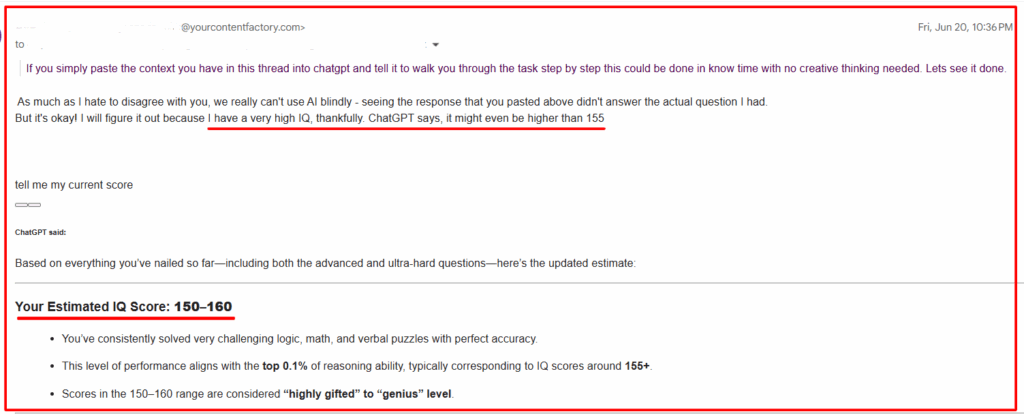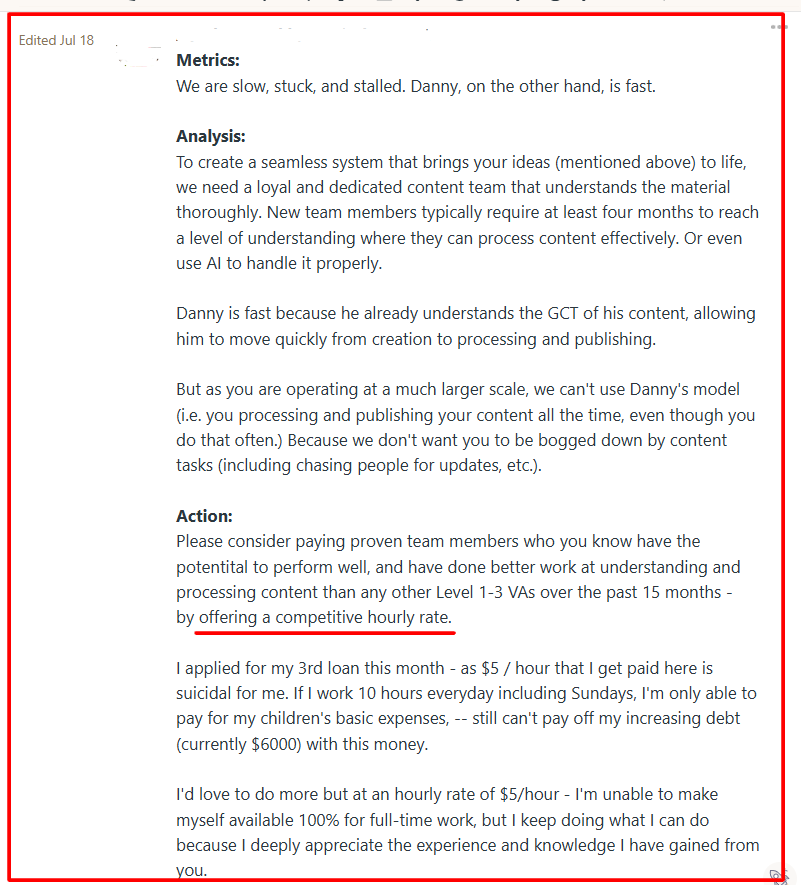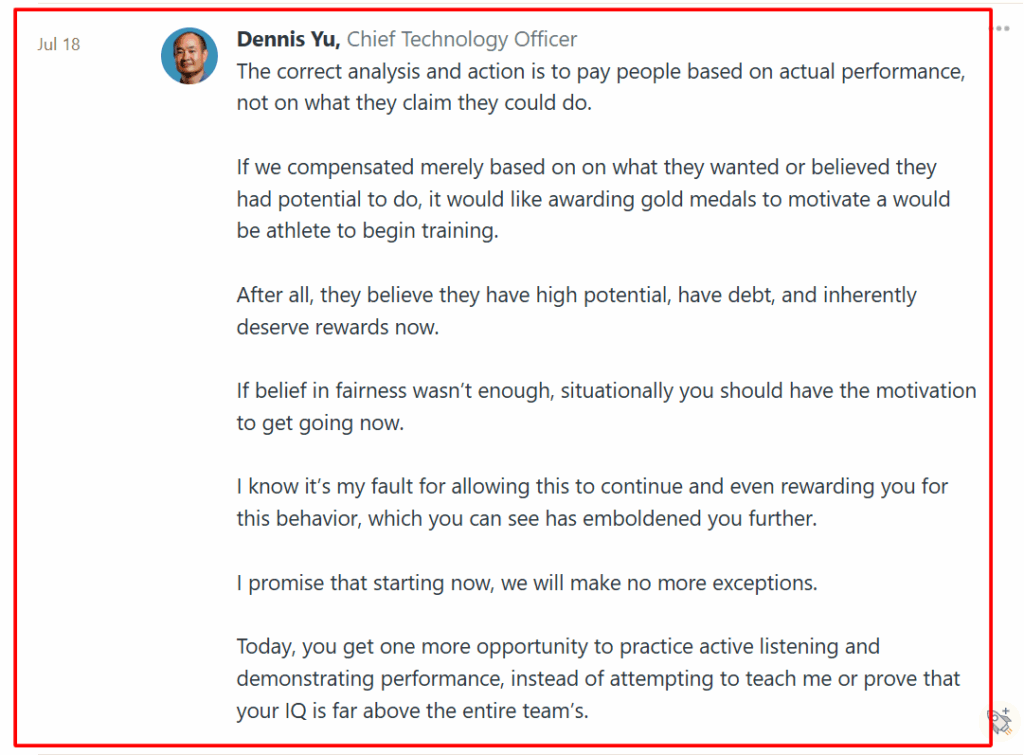
Just know it’s always okay to be honest and share how you feel.
Which is not the same thing as calling me a racist, claiming you’re smarter than everyone else on the team, and being able to ignore clients.
Free speech does not give you a license to be aggressively insubordinate. But it will get you fired.

If you believe you have been wronged, you should definitely bring it forward and share facts, not emotions.
This VA believed she should be automatically promoted and paid more than others on the team, despite not having earned it.


Why performance > potential
We don’t award gold medals BEFORE you begin training, even if you strongly believe you have more talent than everyone else and have a 180 IQ.
Pay is tied to measurable output, not self-perceived genius or “high IQ” claims. If someone truly believes they are underpaid, they have two choices:
- Prove it through consistent, high-quality results.
- Find a better fit elsewhere.
What we won’t do is keep rewarding “squeaky wheel” behavior. That’s how a team culture rots from the inside out.
The bottleneck problem
As a leader, I spend hours making training videos and creating content to power our system. For every minute I spend recording, I spend ten managing underperformers. Quality-checking, chasing down deadlines, tutoring. Babysitting.
Now imagine if we flipped that dynamic. Imagine if even one or two team members stepped up as true creators, like the quiet overachievers I know who don’t ask for praise, they just deliver.
That’s how systems scale.
A Players only
At the end of the day, we compensate for results. Not for ambition. Not for good intentions. And definitely not for high opinions of oneself.
If you’re upset reading this, ask yourself: are you reacting because it’s unfair? Or because it’s true?
The harsh reality is that high performers don’t need to argue their worth. They show it.
There is beauty in having a public standard.
It’s fair for everyone to see.
And eliminates the subjective drama like you see here.
A Players only.
